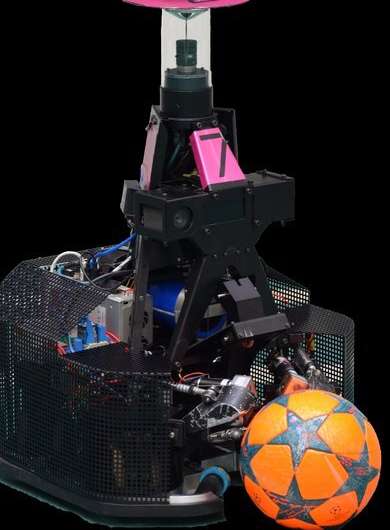Investigating how robot systems can function better in dynamic environments

Currently, most robots are seen in industry where they support repetitive tasks, such as in the assembly lines of cars or in the production of microchips. However, in the near future the robot should find his way in less structured environments as well, to be able to work in healthcare or in hazardous environments, such as disaster areas. Researcher Wouter Houtman investigated the interaction of robots with their environment and developed algorithms to improve their movements in "the real world." He will defend his Ph.D. thesis at the department of Mechanical Engineering on Thursday 4th of November.
Robots are increasingly taking over our tasks. The vast majority is used in automatization of industrial processes, like the assembly of cars and automotive parts or the production of microchips. These robots are designed to perform a limited number of specific tasks in a relatively stable environment.
But if we want to use robots in healthcare to assist nurses—the shortage of staff in hospitals and healthcare institutions is exacerbating—or let them search for victims or hazardous substances after a disaster, the robot should be able to interact effectively with the changing environment. Ph.D.-student Wouter Houtman therefore investigated by several case studies how robot systems can function better in environments in which variation is present.
Soccer playing robots
Those case studies are quite diverse, explains Houtman. "Soccer playing robots, plant grading robots and robots that can estimate human motion intentions. Before we let robots move around in 'the real world," with a lot of variation and uncertainties, we face a number of challenges.
Just by investigating diverse systems—in a dynamic environment with rapidly moving objects, varying objects, or in an environment shared with humans—we can improve robot systems on multiple fronts simultaneously.
With balls coming left, right, high, low, soft, fast, and players defending, attacking or dueling, the soccer field is a highly dynamic environment. For Houtman, this makes it a perfect place to study the movements of autonomous robots.
These soccer robots have a platform with steerable wheels, which make wheel-orientation controllable. Houtman developed a dynamic wheel control, allowing fast re-orientation without slowing down the reactivity of the system; after all, the intentions of opponents are uncertain.
Orchids
In two other systems, the researcher modeled the expected variation of the environment to facilitate the robot's adaptation. In a greenhouse tested Houtman new algorithms to improve automatically counting of flowers in orchid plants, with varying plant size and number of flowers.
In the last study he investigated in an structured indoor environment whether a mobile robot could estimate the intention of a person.
Houtman: "Our goal was to develop a method which considers the possibilities as provided by the environment, rather than trying to estimate the exact path of the person of interest. A person will for instance typically enter a door, instead of hitting the wall. As a next step safe navigation algorithms for spaces shared between robots and humans could be created."
More information: Autonomous Robotic Systems in a Variable World: A Task-Centric approach based on Explainable Models. research.tue.nl/nl/publication … d-a-task-centric-app















